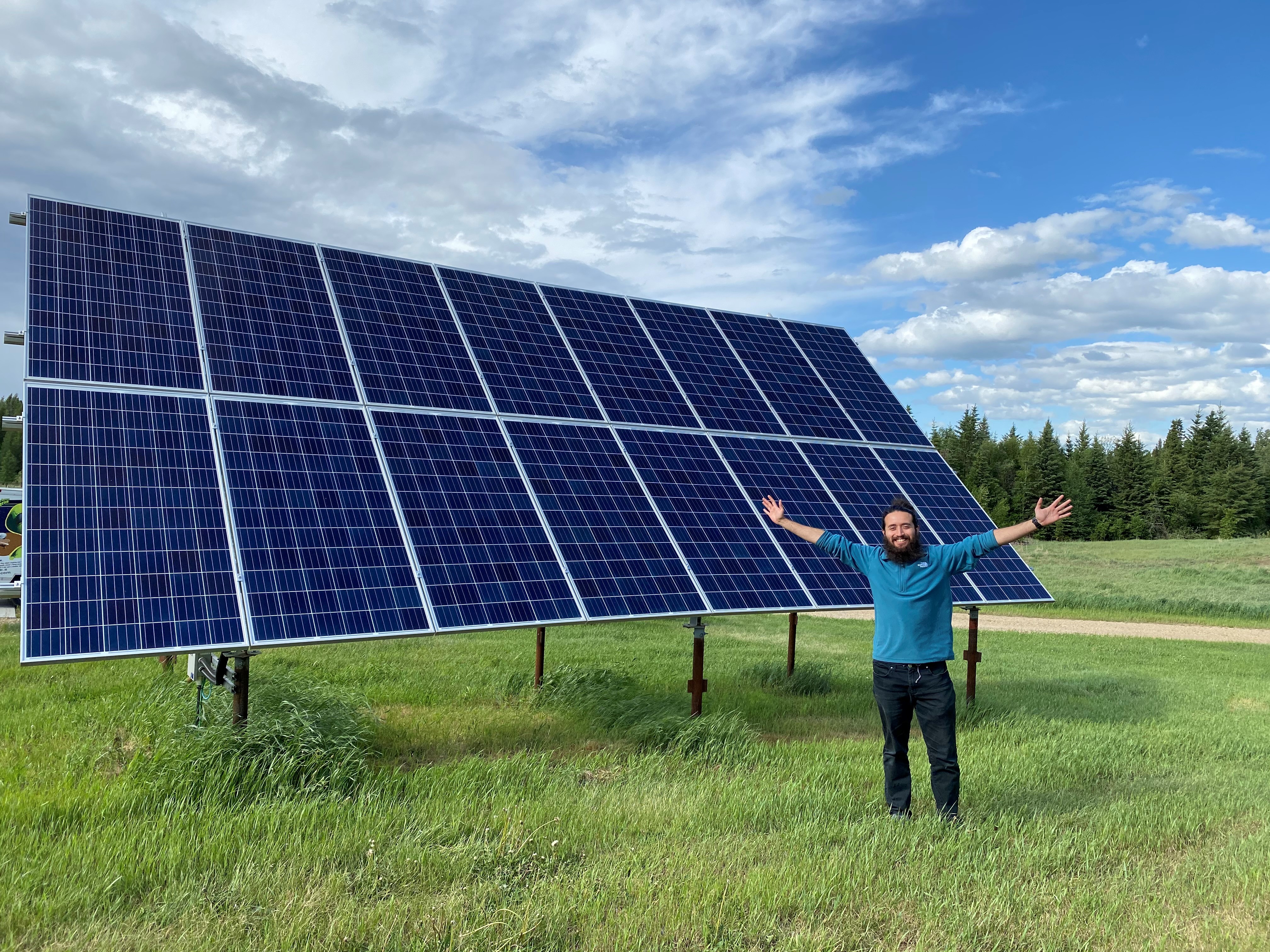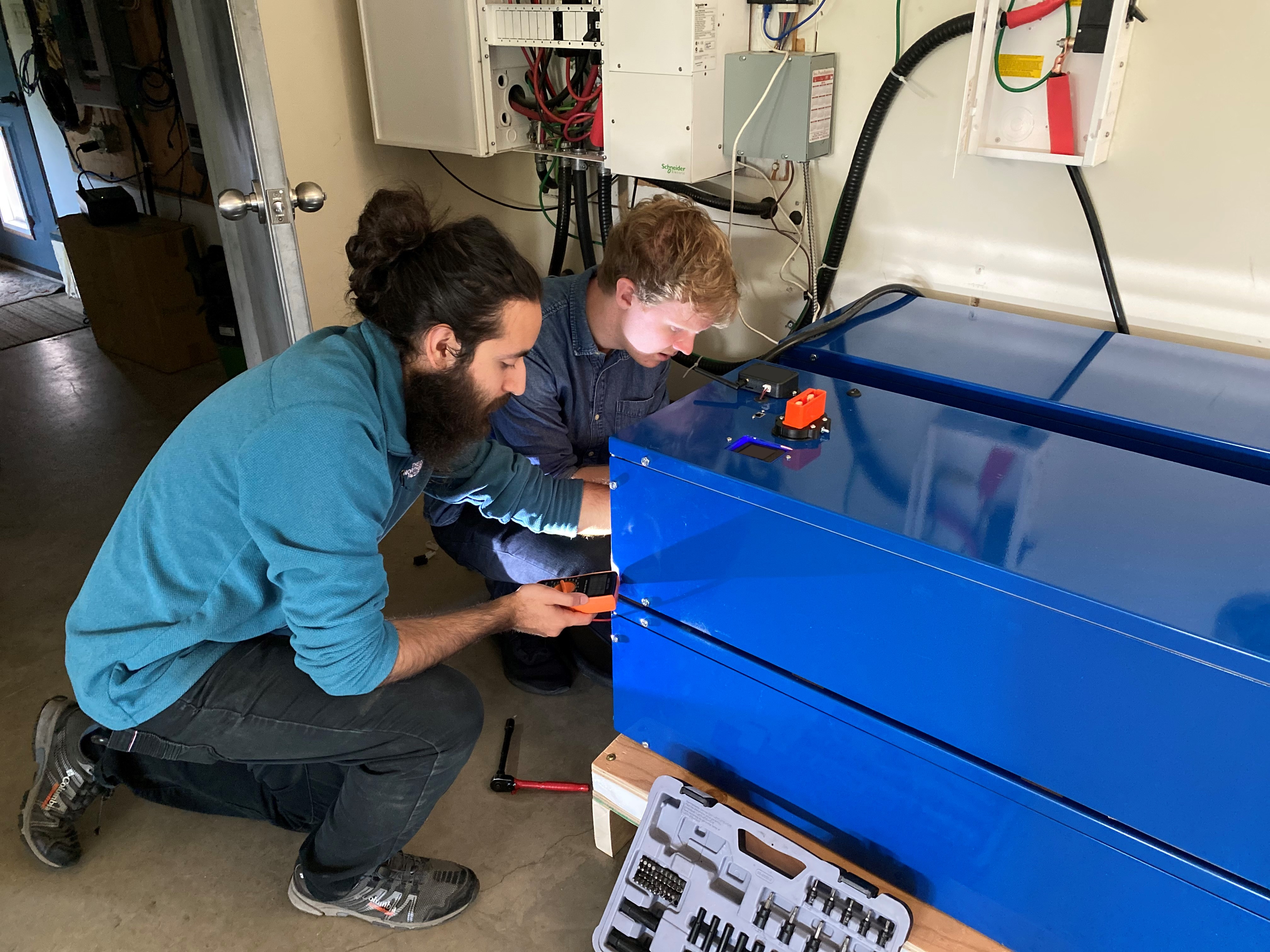Retired EV batteries power Canada’s remote regions

Projects Sponsor
Moment Energy uses retired car batteries to power Canada’s remote regions
The number of Electric Vehicles (EVs) on the road is growing exponentially. Indeed, the EV market is expected to make up to 70% of US automotive sales by 2030 and this, while good news, comes with a downside. More EVs means more retired EV batteries and what exactly to do with the tens of millions of EV batteries that manufacturers expect to produce over the next few decades is another frontier in sustainability.

In 2020, four engineering graduates saw the opportunities presented and Moment Energy was born. Equipped with the knowledge that EV batteries still have 80% of their original capacity left in them when they’re put out to pasture, or left on a shelf, because storing them is cheaper than recycling them, the Moment Energy team sought to solve one problem with another; In Moments’ hands, discarded batteries are able to put their residual seven to ten years of life to use. They’re able to provide affordable and accessible energy storage for use with renewable technology. They go where they are needed.
Internal lab testing and breakdowns of the data from previous pilot deployments were followed with proof-of-concept procedures to make sure the idea of repurposing EV batteries was even possible. A thorough understanding of the remaining life and performance of a second life EV battery is also critical for the second-life battery industry and Moment is working on data-driven predictions for battery degradation. These data-driven predictions are unique in the market, giving Moment an advantage over competitors and cementing the company as a trusted energy storage provider
Learning they could successfully take batteries from retired EVs, test them, and integrate them into a high performing energy storage system to be used with solar and other renewables was a milestone for the team.
A moment energy storage system
A major part of repurposing second life batteries is the supply chain, and Moment successfully formed supply chain relationships with Nissan North America and additional automotive companies.
With this hurdle overcome, Moment designed an energy storage system around these batteries. This involved new electronics design, installation of a battery management system, mechanical design, and integration with existing solar equipment. Once built the team was able to test the first version in their labs with solar panels, inverters, and charge controllers.

These successful tests were a big step towards the implementation of their storage system at remote sites in Canada. With some more testing and packaging, the system was ready to be transported and three paid pilot projects have been launched to date, the third of which was deployed in June 2021 at a remote Albertan home which uses solar, batteries, and a diesel generator for power.
The project involved the repurposing of two Nissan Leaf battery packs into energy storage units that improve the viability of renewables by storing solar power when it’s available, thereby reducing the frequent need to run on-site diesel generators when it’s not.

With the success of this deployment, Moment has moved forward with three additional projects to be installed in remote sites across BC and Nova Scotia through 2021. These projects employed the equivalent of forty-eight repurposed Nissan Leaf Vehicles, and by the end of 2021, Moment Energy will have repurposed the equivalent fifty-three retired Nissan Leaf batteries.
With $1.2M in letters of intent and negotiations with partners, including Indigenous owned companies and remote communities ongoing, Moment Energy is seizing the moment, laying out a battery retirement plan that can benefit everyone.
The number of Electric Vehicles (EVs) on the road is growing exponentially. Indeed, the EV market is expected to make up to 70% of US automotive sales by 2030 and this, while good news, comes with a downside. More EVs means more retired EV batteries and what exactly to do with the tens of millions of EV batteries that manufacturers expect to produce over the next few decades is another frontier in sustainability.
















